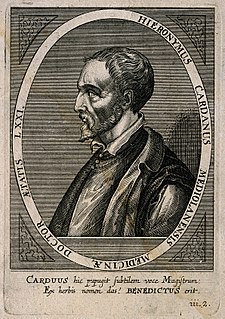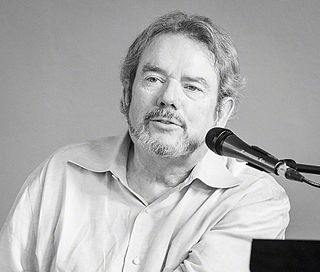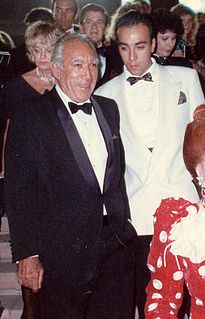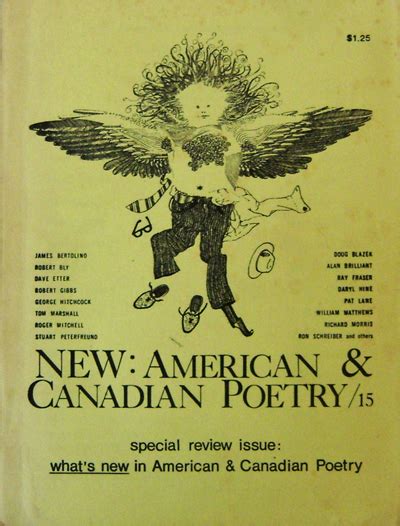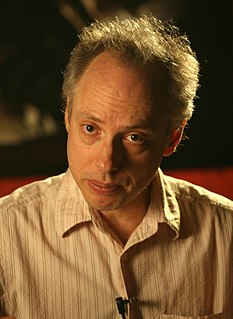A Quote by Jonathon Keats
We're back around to [Buckminster] Fuller again. Back around to the recognition of patterns, which may be true or may not be. But nevertheless, have enough of a semblance that they're worth exploring. That, to me, is where my work begins.
Related Quotes
Just getting totally absorbed in that and therefore when I came back around to [Buckminster Fuller] and found that much of it was made up, I realized that nevertheless, it really was crucial, crucial for how he understood himself, I believe, and certainly crucial for how anyone else ever engaged in his ideas and therefore as a starting point, how can we engage in his ideas today, but with a remove of knowing that it is a myth and being able to navigate it in that sort of level, at that level of reading him as a story.
I believe that everything has a purpose and that everything a person does will come back to haunt or save him. Life is like a mirror in which everything we do is reflected back to us. We might not be able to recognize the reflection, and at times the image may be hidden. We may take years to see it or it may not even be visible during our lifetime. But it all comes around in the end. Space is as infinite as our actions are timeless. We are all part of the same invisible story, all travelling in a single continuum.
We get stuck in old thought and behavior patterns that may have been effective when we were twelve months or twelve years old, but now only serve to hold us back. And, while those around us may have no problem correcting our minor flaws, they let the big ones slide, because it would mean attacking who we are.
May your love be firm, and may your dream of life together be a river between two shores - by day bathed in sunlight, and by night illuminated from within. May the heron carry news of you to the heavens, and the salmon bring the sea's blue grace. May your twin thoughts spiral upward like leafy vines, like fiddle strings in the wind, and be as noble as the Douglas fir. May you never find yourselves back to back without love pulling you around into each other's arms.
I didn't grow up with [Buckminster Fuller]. I never met him. I was once close to meeting him as a child at a ski resort one summer. He died in 1983. Only in 1999 or so, 2000, when I was working as an editor at San Francisco Magazine, did I really come back around to that name because Stanford University had just acquired the archive.
Once you start backing into all of that, then you see this incredibly intricate, totally wrong-headed way to do things, but nevertheless has a lot of merit to it for the fact that [Buckminster Fuller] is recognizing much larger patterns, seeking much larger patterns and seeking much larger ways of trying to solve for the problem of unhygienic conditions in slums. They really were unhygienic. Whether his family was living in the slum is debatable but they were unhygienic. That needed to be addressed. He was attempting to address it.
I try to be realistic with students. And say that there's a good chance that they're not going to get a creative writing teaching job, that there aren't enough jobs to go around and the university faculties are cutting back on staff and that they may have to get some other kind of work. None of them wants to hear that, but it is true and I think I'm a good example for them of somebody who took the other route.
To be beneficent when we can is a duty; and besides this, there are many minds so sympathetically constituted that, without any other motive of vanity or self-interest, they find a pleasure in spreading joy around them, and can take delight in the satisfaction of others so far as it is their own work. But I maintain that in such a case an action of this kind, however proper, however amiable it may be, has nevertheless no true moral worth, but is on a level with other inclinations. . . . For the maxim lacks the moral import, namely, that such actions be done from duty, not from inclination.
We bless the life around us far more than we realize. Many simple, ordinary things that we do can affect those around us in profound ways: the unexpected phone call, the brief touch, the willingness to listen generously, the warm smile or wink of recognition. All it may take to restore someone's trust in life may be returning a lost earring or a dropped glove.

